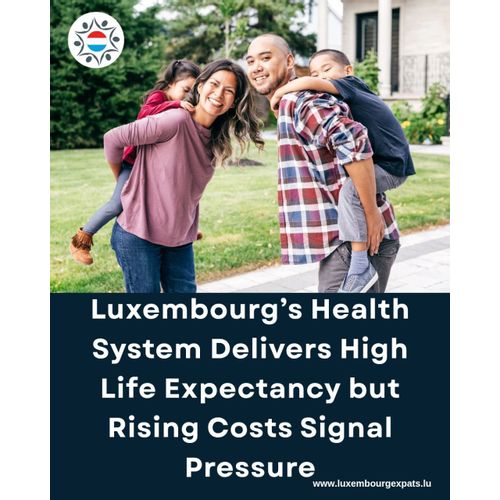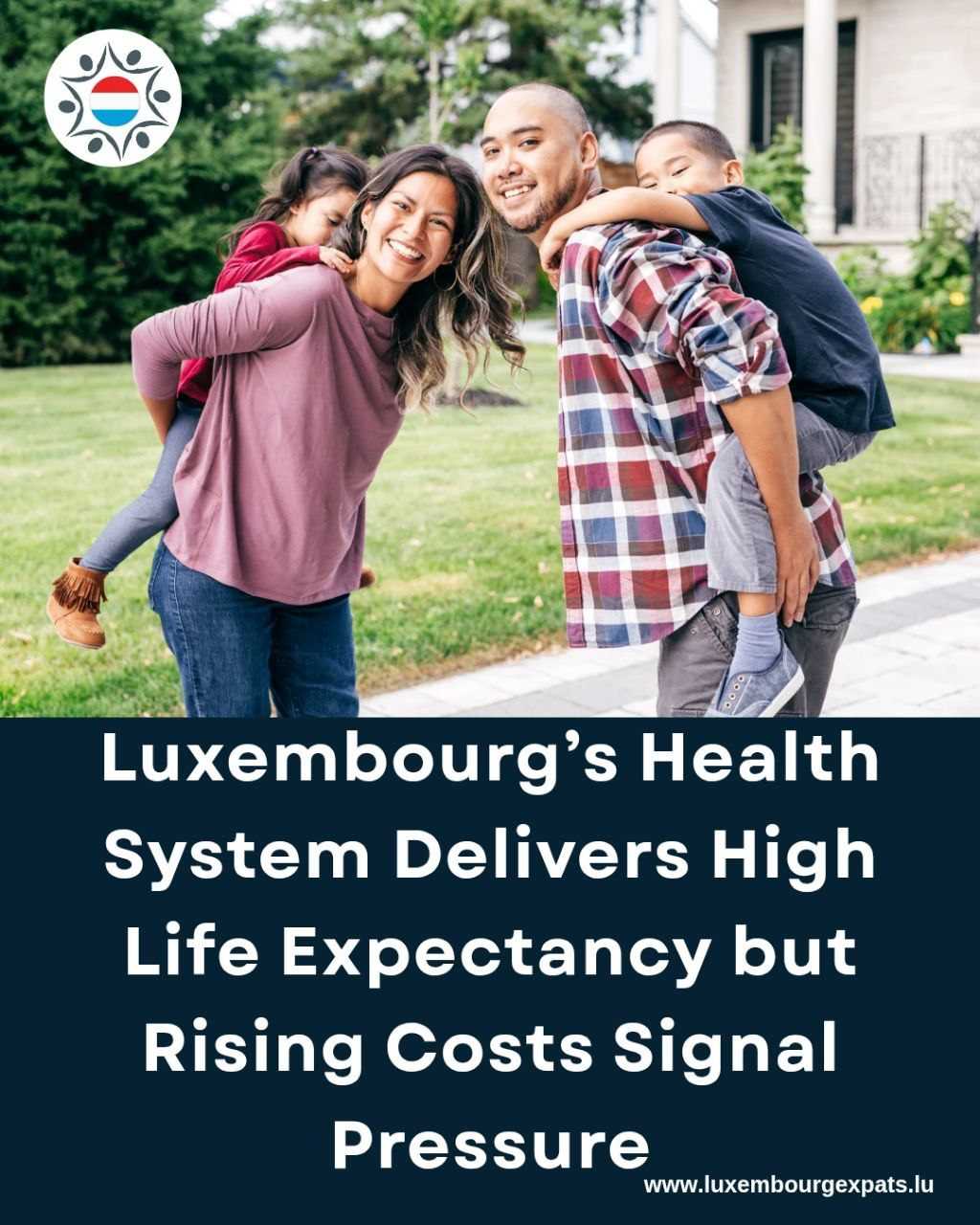Luxembourg’s Health System Delivers High Life Expectancy but Rising Costs Signal Pressure
LuxembourgPosted on 15 November 2025 by Team · 2 min readLuxembourg continues to rank among the strongest performers in the OECD when it comes to population health and access to medical services, according to the 2025 edition of the Health at a Glance report. The country enjoys a life expectancy of 83.4 years, significantly above the OECD average, and performs well across several key indicators, from preventable mortality to patient satisfaction. Only a small share of residents report poor health, and suicide rates remain well below international averages, underlining the country’s overall favourable public health conditions.
Across major health risks, Luxembourg shows a mixed profile. Smoking levels are similar to other OECD nations, but alcohol consumption is notably higher. Physical activity, however, is an area where Luxembourg stands out positively, with only 15% of adults reporting insufficient exercise compared to an OECD average twice as high. Obesity rates are also modest, and air pollution levels remain relatively low, reinforcing the benefits of the country’s environmental and lifestyle conditions.
Access to care is one of Luxembourg’s greatest strengths. The entire population benefits from core coverage, and satisfaction levels with healthcare quality remain exceptionally high. Only about 1% of residents report unmet medical needs, far below the OECD average, and the system offers strong financial protection through mandatory prepayment mechanisms that cover the vast majority of costs. Childhood vaccination rates are nearly universal, reflecting the system’s emphasis on early and preventive care.
Despite these strengths, the report highlights several areas of concern. Hospital outcomes after acute medical events show room for improvement, such as higher-than-average mortality following heart attacks. Avoidable hospitalisations are also more frequent than the OECD benchmark, suggesting potential gaps in preventive or primary care follow-up. Meanwhile, although Luxembourg spends heavily on health per person—one of the highest levels in the OECD—prevention accounts for only a small share of total health expenditure, leaving long-term efficiency gains uncertain.
The country benefits from a strong medical and care workforce, including a higher-than-average number of doctors, nurses and long-term care staff relative to its population. Hospital and diagnostic capacities are also solid, though the use of generic medicines remains limited, which may contribute to higher system-wide costs.
Overall, Luxembourg’s health system stands out for its generous access, high satisfaction, strong workforce and excellent health outcomes. Yet rising spending pressures, combined with gaps in prevention and some clinical outcomes, indicate that maintaining this high performance will require careful, forward-looking planning. The OECD’s findings suggest that while Luxembourg’s foundation is strong, strengthening preventive care and improving cost efficiency will be essential priorities in the years ahead.
Read More : Health at a Glance 2025: Luxembourg
Health at a Glance 2025 - Health Portal - Luxembourg
Join the community of your own - #1 home-grown LuxExpats app
SignUp Free : luxembourgexpats.lu
I am your contact
Team
Chat








